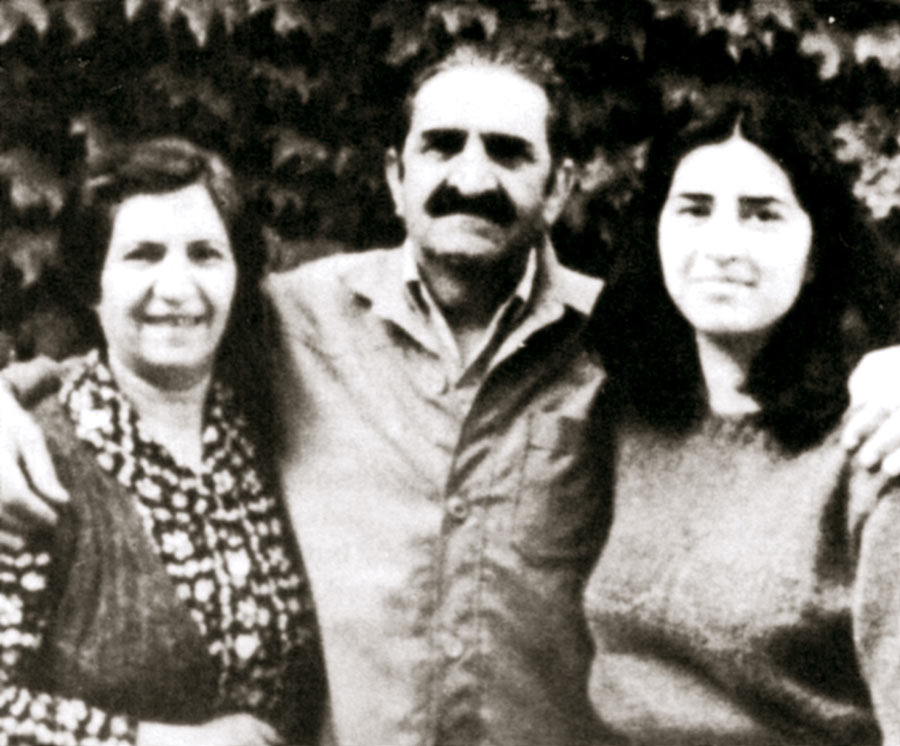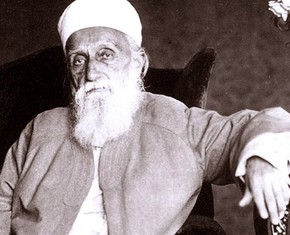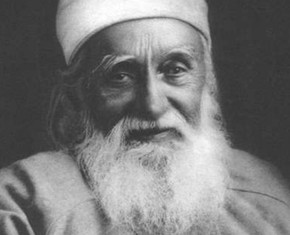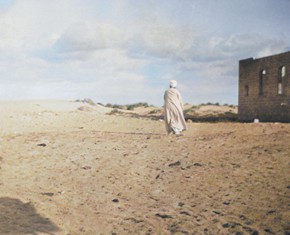The views expressed in our content reflect individual perspectives and do not represent the authoritative views of the Baha'i Faith.
Would you give your life for your beliefs? Thirty-four years ago, ten Iranian women had to make that unimaginable choice.
In spite of the dire circumstances these Baha’i women found themselves in, suffering almost daily torture sessions in addition to the jeers and taunts of the prison guards and the dearth of food, hygiene. health care, and physical comforts, the spiritual strength and the equanimity of these women is hard to imagine. They heard that summons to the “court of holiness” and were ready and willing to accept it:
With the joyful tidings of light I hail thee: rejoice! To the court of holiness I summon thee; abide therein that thou mayest live in peace for evermore. – Baha’u’llah, The Hidden Words, p. 11.
In today’s essay, we’ll meet two of these ten special souls. I place them both in the same article because they were a mother and daughter who shared much in life, including two imprisonments and martyrdom.
The word martyrdom has a seriously negative connotation these days. But in its truest sense, it simply describes someone willing to suffer or die rather than recant their faith or their principles.
The Baha’i mother Izzat Janami, age 57, was arrested along with her husband, Inayat Ishraqi, and her daughter, Ru’ya. Izzat was no stranger to imprisonment. Izzat and Ru’ya had both been imprisoned previously, simply for being Baha’is, but had been released. Rather than try to leave their home for a safer location, they chose to remain in Shiraz, Iran, in order to be of service to others. Their home sheltered those made homeless due to the continuing persecutions of the Baha’is.

Ru’ya Ishraghi with her parents Izzat and Inayat Janami.
During her interrogations, Izzat was sometimes blindfolded, which made movement difficult. To an interrogator’s taunt, “Are you too blind to walk?” she boldly responded, “I’m outwardly blind, but you are inwardly blind.”
Not free to attend the wedding of her daughter, Ruzita, she asked Mrs. Mahmudnizad, another Baha’i prisoner who was being released, to please attend, and take with her red carnations to represent each of the women prisoners.
Twenty-three year-old, Ru’ya Ishraqi, Izzat’s daughter, was in her second year of veterinary school at the time of her second arrest. She loved to be active and enjoyed sports. Her physical pursuits included mountain climbing. One of the most beloved of the prisoners, Ru’ya was usually the center of attention and activity: “…possessed of beauty and a radiant personality; she was one of the most popular Baha’i youth of Shiraz” – Persecution of the Baha’i Community of Iran, 1983-1986, compiled on behalf of the Universal House of Justice, in Baha’i World, Volume 19, p. 182.
Once, when Ru’ya and her father were being interrogated together, the deep bond between them didn’t go unnoticed. The judge said to Ru’ya, “What a pity. You put yourselves through this agony only for one word; just say you are not a Baha’i and I’ll see that the three of you are released, and payment of the pension of your father resumed.”
“Your honour,” Ru’ya replied, “the love of father and mother for their daughter is a natural sentiment, but my love for my Lord and my attachment to His Cause must take precedence over my love for my parents. I will not exchange my faith for the whole world.”
Two days after her father’s execution, which took place on the same day she became betrothed, Ruzita went to the prison to inform her mother and sister. Ru’ya exclaimed “Thank God!” while a calm Izzat quietly intoned, “I knew, I knew, I knew.”
Asked … if she would insist on saying she is a Baha’i even until the moment of her execution, Ru’ya replied that she hoped to remain firm in her belief and steadfast in her love of the Blessed Beauty to the end of her life. As a child of five or six, she had dreamed one night that she was lost in a wheatfield among stalks so high that she could not find her way home, and was rescued and taken home by two men of brilliant countenance on horseback, one of whom was Baha’u’llah and the other Abdu’l-Baha. – Ibid.
They were surely there to welcome her to her new life in the next world.
Ru’ya, forced to witness her own mother hanging from the gallows, maintained a serene countenance. It is said that after her final breath had been squeezed out of her by the noose, her eyes remained wide open. What must she have seen as she danced at the end of that rope?
You May Also Like
Comments

















Urla Morgan